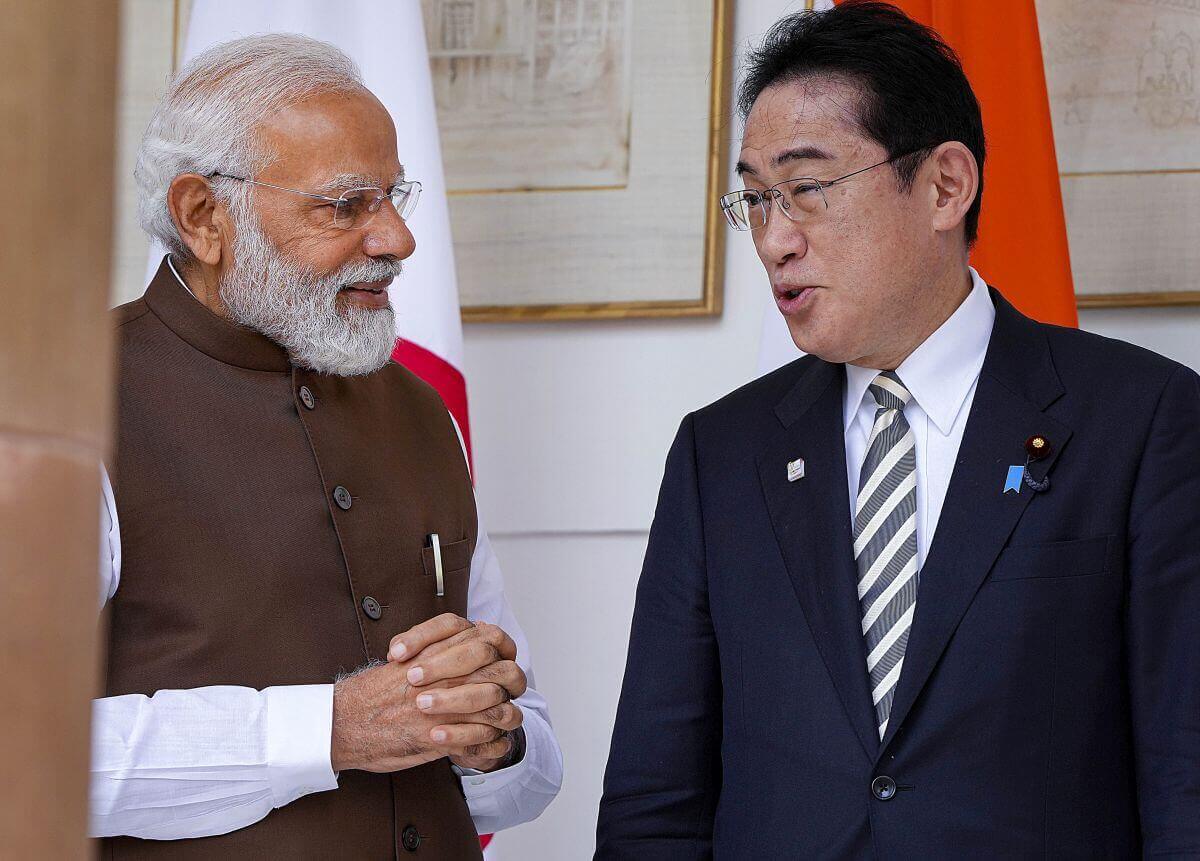Indian PM Narendra Modi and his Japanese counterpart Fumio Kishida held the 14th India-Japan Annual Summit on the 70th anniversary of the establishment of the countries’ diplomatic relations on Monday.
Indo-Pacific Security Cooperation
The leaders agreed that expanding the India-Japan strategic partnership is key for a peaceful, stable, prosperous Indo-Pacific, free from coercion.
To this end, Modi and Kishida agreed to continue holding bilateral and multilateral military exercises, such as the “Dharma Guardian” and “Malabar” exercises. India welcomed Japan’s participation in exercise MILAN for the first time and agreed to increase its complexity in the future.
PM Kishida: After the summit meeting, I visited Buddha Jayanti Park, at Prime Minister Modi's invitation.
— PM's Office of Japan (@JPN_PMO) March 20, 2023
Thank you, Prime Minister Modi (@narendramodi), for the warm welcome you have given me. (March 20) pic.twitter.com/0AQbYfoRas
Furthermore, both PMs acknowledged the importance of plurilateral regional partnerships among like-minded countries, such as the Quadrilateral security dialogue (Quad), which comprises Australia, India, Japan, and the US.
In addition, New Delhi’s press release stated that the leaders underscored their “shared interest in the safety and security of the maritime domain, freedom of navigation and overflight, unimpeded lawful commerce and peaceful resolution of disputes with full respect for legal and diplomatic processes in accordance with international law,” particularly the United Nations Convention on the Law of the Sea (UNCLOS).
In a veiled reference to aggression from China and North Korea in the Indo-Pacific, the countries reaffirmed their determination to “meet challenges against the rules-based maritime order in the East and South China Seas” and emphasised “the importance of non-militarisation and self-restraint.”
PM Kishida "explained Japan's position" on Russia Ukraine conflict to PM Modi & "common responsibility to uphold the rules based order", says Japanese officials
— Sidhant Sibal (@sidhant) March 20, 2023
G7 and G20 Convergence
Modi expressed hope that Japan — the current G7 president — will closely work with India — which holds the G20 presidency this year — and further strengthen their relations under the “Japan-India Special Strategic Global Partnership.”
In response, Kishida expressed hope to hold several discussions in view of the upcoming G7 Hiroshima Summit in May and the G20 New Delhi Summit in September this year. He also invited his Indian counterpart to participate in the G7 Hiroshima Summit, which Modi accepted.
Indian PM Modi, Japan PM Kishida at Delhi's Buddha jayanti park https://t.co/IDCzK3fYzX pic.twitter.com/errKvvvkNn
— Sidhant Sibal (@sidhant) March 20, 2023
In the lead-up to both summits, the two leaders pledged to cooperate on various issues including development finance, food security, climate, and energy.
Economic Cooperation
Both countries welcomed the progress toward the 5-trillion-yen target of public and private investment from Japan in India over the next five years, which was agreed upon last March.
A walk-through the India-Japan relationship rooted in spiritual affinity!
— Arindam Bagchi (@MEAIndia) March 20, 2023
PM @narendramodi and PM @kishida230 of Japan visit the Buddha Jayanti Park in New Delhi.
In a special gesture, PM Modi gifted a sapling of Bal Bodhi tree to PM Kishida. pic.twitter.com/M5nLR24hqu
They also hailed the signing of the 300-billion-yen loan for the construction of a Mumbai-Ahmedabad high-speed rail and reaffirmed cooperation in promoting the high-speed rail project as their flagship project.
Moreover, they pledged to continue cooperation on developing India’s northeastern region, through the Japan-India Act East Forum.

